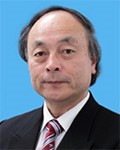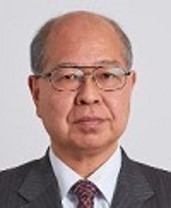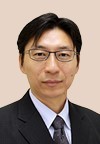报告时间:3月18日(星期一)9:00
报告地点:信息楼3044am永利集团3044noc310报告厅
(一)
报 告 人:广田薰,日本东京工业大学教授

(Prof. Kaoru Hirota, Tokyo Institute of Technology, Japan)
报告题目:Introduction to Fuzzy Logic & JSPS Activities
内容简介:The lecture is mainly for the graduate students majoring in intelligence control. Fuzzy logic is an extension of the computer logic, i.e., two-valued Boolean logic, and is the basis for the fuzzy control in the framework of intelligence control. After the brief survey of two-valued Boolean logic, the concept of 3 basic fuzzy logical operations are introduced, i.e., fuzzy negation, t-norm, and s-norm. The examples of each fuzzy logical operations are mentioned and their mathematical properties are discussed. Finally, (1-, min, max) is mentioned to be used as the most popular fuzzy logical operation system, and is shown that it constitutes a pseudo complemented distributive lattice, i.e., pseudo Boolean algebra. It is also introduced that how this (1- , min, max) system is used to the fuzzy inference operation in various, practical fuzzy control systems.
Then, as a director of Japan Society for the Promotion of Science (JSPS) Beijing office, a brief introduction to various JSPS programs for the Chinese researchers’ convenience is presented.
报告人简介:Prof. Kaoru Hirota (IFSA Fellow 2003) received Dr. E. degrees from Tokyo Institute of Technology in 1979. He is an honorary professor in Tokyo Institute of Technology, Japan. His research interests include fuzzy systems, intelligent robot, and image understanding. Dr. Hirota experienced president and fellow of IFSA (International Fuzzy Systems Association), and president of SOFT (Japan Society for Fuzzy Theory and Systems). He also experienced Associate Editors of IEEE Transactions on Fuzzy Systems, and IEEE Transactions on Industrial Electronics. He is now a chief editor of J. of Advanced Computational Intelligence and Intelligent Informatics, Associate Editor of IEEE Transactions on Systems, Man, and Cybernetics: Systems, and Advisory Board of International Journal of Fuzzy Systems. Banki Donat Medal, Henri Coanda Medal, Grigore MOISIL Award, SOFT best paper award, Acoustical Society of Japan best paper award, were awarded to him. He organized many international conferences/symposiums as a founding/general/ program chair.
(二)
报 告 人:大山恭弘,日本东京工科大学教授

(Prof. Yasuhiro Ohyama, Tokyo University of Technology, Japan)
报告题目:Motion Analysis of a Walking Assist Device to Human Manipulation
内容简介:A self-supporting walking aid device called Raku-WALK has been developed by Kikuchi Mfg., and this can reduce the amount of force needed to walk for the user. By adding electrical elements, an electric type of Raku-WALK has been also developed, which can reduce the burden on the foot. Even if there is no effort given from the foot, users who cannot walk by themselves can still move forward.
In this talk, we will present the relation between human maneuverability and the motion of the cart, non-electric 'Raku-WALK'. Some contact sensors for hands and pressure sensors for feet are used as human inputs, and 9-axis motion sensor and encoders are used to measure the motion of the cart as related outputs. The experimental results show that the acceleration of the machine becomes large by running and sudden rotation of the caster which worsens user's comfort, and when the acceleration gets bigger, the grip towards the handle got much more firm. We are going to derive a model from human action to the cart motion.
报告人简介:Prof. Yasuhiro Ohyama received his Ph. D. in Engineering from Tokyo Institute of Technology. He was a director in Advanced Control Laboratory Inc. from 1985 to 1991. He jointed Tokyo University of Technology as Lecturer in 1991, Associate Professor in 1996, and Professor in 2002. Since 2015, he has been Dean in School of engineering, Tokyo University of Technology.
Prof. Ohyama’s research interests include human movement behavior analysis, rehabilitation robot, the development and application on biological robots and modular robots, and some research on network learning.
(三)
报 告 人:福岛E. 文彦,日本东京工科大学教授

(Prof. Edwardo Fumihiko FUKUSHIMA, Tokyo University of Technology, Japan)
报告题目:Research and Development Status of Worm-type Robots for Infrastructure Inspection
内容简介:Research and development of mobile robots for maintaining a sustainable society in high demand in many areas, including robotic systems for environmental monitoring and resource investigation work, robots for disaster prevention, rescue, infrastructure maintenance, agriculture, medical and welfare supporting robots and other service robots, among others. In this talk, I will explain the basics of mechanical design and control architecture of long articulated body mobile robots. In particular, special attention will be given to development of a class of worm-type robot for infrastructure inspection.
报告人简介:Prof. Edwardo Fumihiko Fukushima received his B. Sc. in Electrical Engineering, Federal Center of Technological Education of Paraná, Brazil in 1989. Dr. Fukushima entered Tokyo Institute of Technology, Japan, as a research student at Dept. of Mechanical Engineering Science in 1990; and received his M.S. and Ph.D. degrees in Mechanical Engineering Science, Tokyo Institute of Technology in 1991 and 1993, respectively.
He jointed Tokyo Institute of Technology as Assistant Professor in 1994, Associate Professor in 2006. Since 2014, he has been Professor at Tokyo University of Technology. He was Visiting Researcher at Stanford University, USA for five months in 2001, and Visiting Scientist at Artificial Intelligent Laboratory, University of Zurich for one month in 2004.
Dr. Fukushima received the 5th Robotics Society of Japan Award for Applied Technology in 2000; the System Integration Award for Technological Achievement 2009 from the Society of Instrument and Control Engineers, Japan, in 2009; the Best Paper Award at the 3rd International Conference on Underwater System Technology (USYS'10) in 2010; and the Best Paper Award, 2014 IEEE/SICE International Symposium on System Integration (SII2014) in 2014.
He is member of the Robotics Society of Japan (RSJ), the Japan Society of Mechanical Engineers (JSME), the Society of Instrument and Control Engineers (SICE), and the Institute of Electrical and Electronics Engineers (IEEE).

